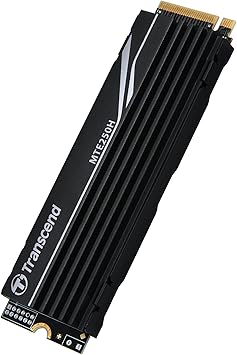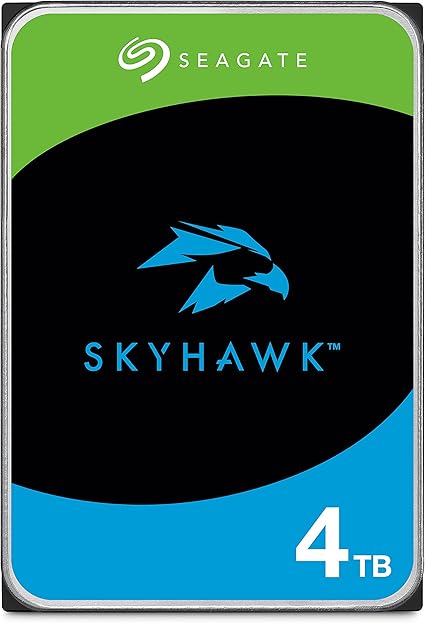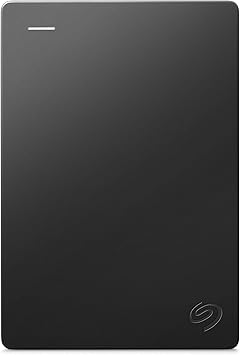
Transcend TS4TMTE250H 4TB MTE250H NVMe Internal Gaming SSD Solid State Drive, Compatible with PlayStation 5 - Gen4x4 PCIe, M.2 2280 with Aluminum Heatsink, Up to 7,200MB/s
Brand: Transcend
$389.99
- Transcend's MTE250H PCIe SSD follows the latest NVMe 1.4 standard, supporting the PCIe Gen4 x4 interface, allowing four lanes to transmit and receive data simultaneously. Its 8-channel controller delivers sequential R/W up to 7,500/6,700 MB/s, and up to 540K IOPS, providing captivating performance and response times for your PC systems and game consoles.
- Transcend's MTE250H features the new PCIe 4.0 specification, supporting a bandwidth of 16 GT/s per lane as opposed to 8 GT/s per lane for PCIe 3.0. Backwards compatible with PCIe 3.0, PCIe 4.0 unleashes higher transfer speeds and guarantees lower system latency. For advanced gamers, this means a more seamless and immersive experience.
- Transcend's MTE250H features a high efficiency aluminum heatsink to improve heat dissipation of the high performance, compact-sized SSD. The high thermal conductivity of aluminum and increased surface area reduce drive temperatures by 15%, allowing the SSD to maintain lower operating temperatures, even when you're maxing out performance on your desktop PC or game console.
- Transcend's PCIe SSD MTE250H is engineered with LDPC (Low-Density Parity Check) coding--a powerful ECC algorithm--to keep data secure. With its built-in dynamic thermal throttling mechanism, operating temperature is precisely monitored and controlled for the MTE250H, delivering superior endurance and stability for high-end applications.
- Featuring the M.2 2280 form factor, Transcend's MTE250H is available in capacities of up to 4TB, giving users plenty of space to store multiple blockbuster games.
Description
4TB, M.2 2280, PCIe Gen4x4, NVMe, 3D TLC, with DRAM (Aluminum Heatsink)
Product Information
| Customer Reviews | 4.2 4.2 out of 5 stars 48 ratings 4.2 out of 5 stars |
| Best Sellers Rank | #4,895 in Internal Solid State Drives #62,553 in Computer Internal Components |
Other Products





